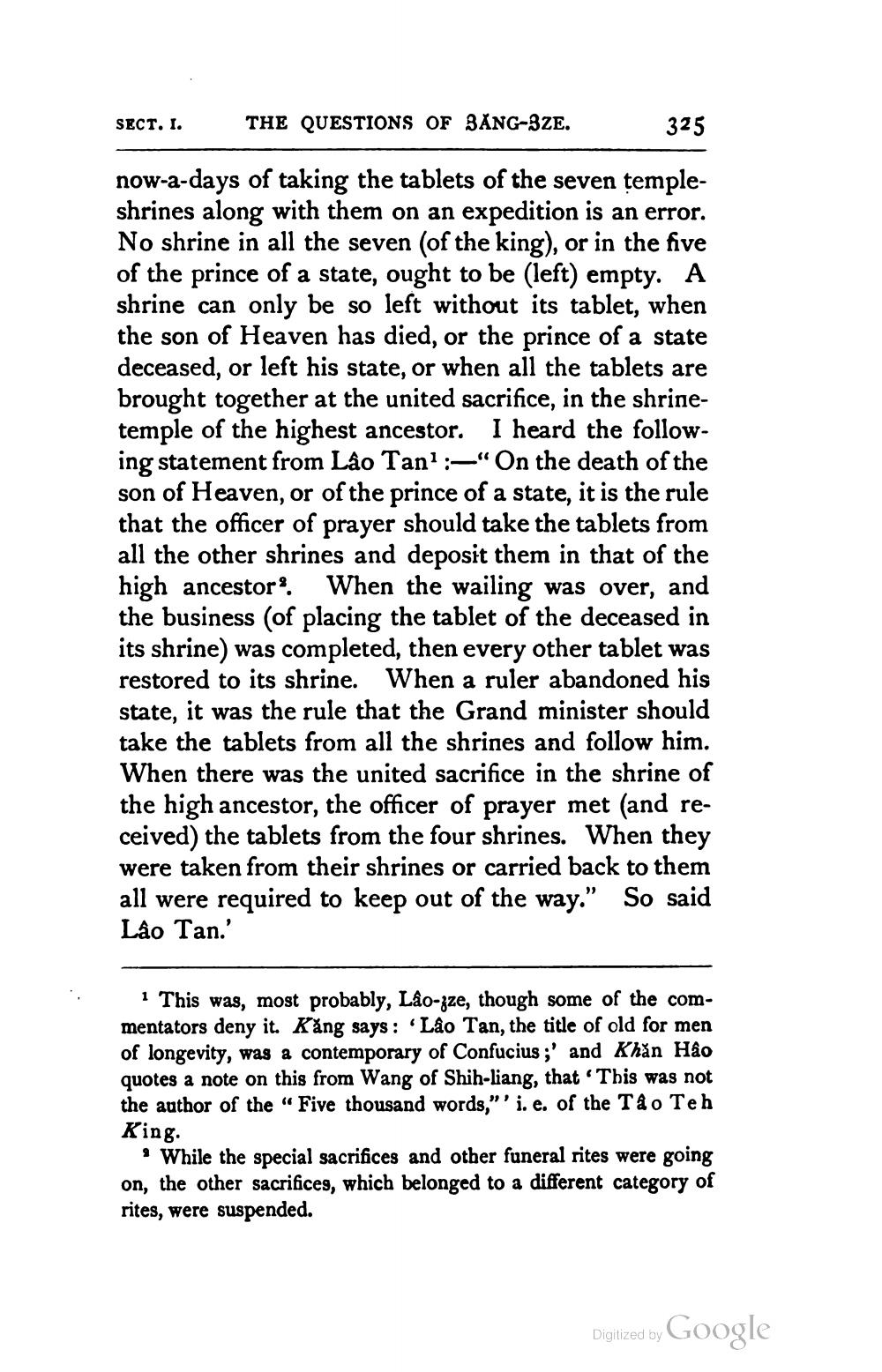________________
SECT. I.
THE QUESTIONS OF SANG-SZE.
325
now-a-days of taking the tablets of the seven templeshrines along with them on an expedition is an error. No shrine in all the seven (of the king), or in the five of the prince of a state, ought to be (left) empty. A shrine can only be so left without its tablet, when the son of Heaven has died, or the prince of a state deceased, or left his state, or when all the tablets are brought together at the united sacrifice, in the shrinetemple of the highest ancestor. I heard the following statement from Lão Tan? :-"On the death of the son of Heaven, or of the prince of a state, it is the rule that the officer of prayer should take the tablets from all the other shrines and deposit them in that of the high ancestors. When the wailing was over, and the business (of placing the tablet of the deceased in its shrine) was completed, then every other tablet was restored to its shrine. When a ruler abandoned his state, it was the rule that the Grand minister should take the tablets from all the shrines and follow him. When there was the united sacrifice in the shrine of the high ancestor, the officer of prayer met (and received) the tablets from the four shrines. When they were taken from their shrines or carried back to them all were required to keep out of the way.” So said Lão Tan.
1 This was, most probably, Lâo-zze, though some of the commentators deny it. Kång says : Lào Tan, the title of old for men of longevity, was a contemporary of Confucius ;' and Khăn Hảo quotes a note on this from Wang of Shih-liang, that This was not the author of the “Five thousand words," ' i. e. of the T&o Teh King.
• While the special sacrifices and other funeral rites were going on, the other sacrifices, which belonged to a different category of rites, were suspended.
Digitized by Google




